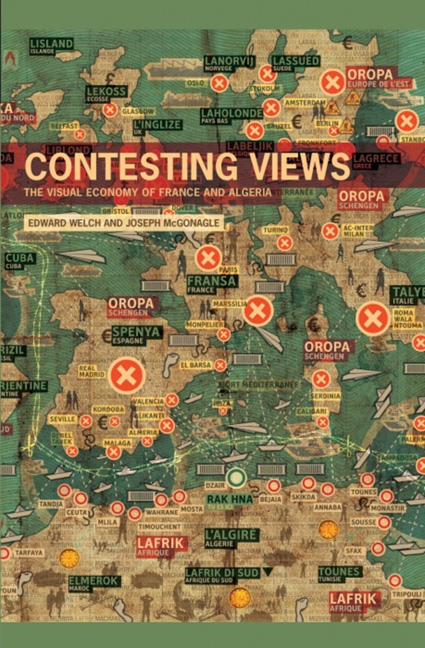Introduction: Visualising the Franco-Algerian Relationship
Summary
Nineteen March 2012 proved to be a notable date in France for two reasons. First, it was marked by extensive coverage in the French media of the fiftieth anniversary of the ceasefire agreed in the Évian accords between the French government and the Gouvernement Provisionnel de la République Algérienne (GPRA). The ceasefire marked the official suspension of military hostilities in Algeria, and the first stage of the process towards the declaration of an Algerian republic on 5 July 1962. The extent of the coverage, and the way in which it drew together diverse perspectives on the war, including those which in the past had often been marginalised or occluded, suggested that after fifty years France was finally in a position to recognise and acknowledge more fully the complexity of the Algerian War, its colonial activities in the country, and their persistence as a reference point for large sections of the French population.
However, reflection on the war came to be overshadowed by a dramatic series of events played out that morning in Toulouse in South West France. Following the assassination of three off-duty soldiers the previous week, three schoolchildren and an adult were shot dead at close range outside a Jewish school by a lone gunman, Mohamed Merah. It soon became clear that the adult was both father to two of the children and a teacher at the school, and that the other child was the daughter of the school's head teacher. Following an armed stand-off at his flat in the city, Merah would himself be shot dead by a police marksman a few days later. It would subsequently emerge that Merah, a French citizen of Algerian origin, claimed to have received training at an Al-Qaeda camp in Pakistan, and had sought to avenge Muslim deaths in Palestine, Iraq and Afghanistan.
- Type
- Chapter
- Information
- Contesting ViewsThe Visual Economy of France and Algeria, pp. 1 - 10Publisher: Liverpool University PressPrint publication year: 2013



